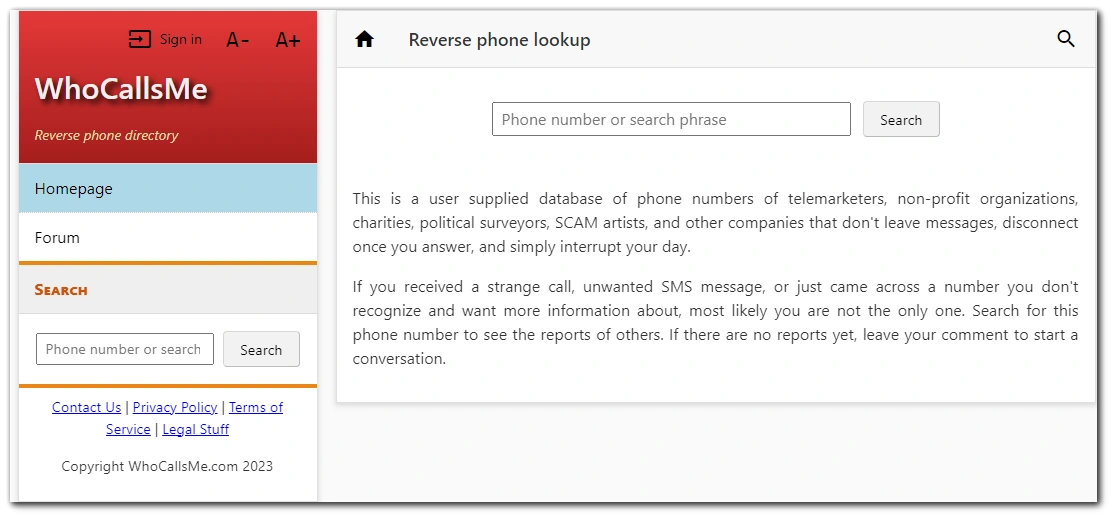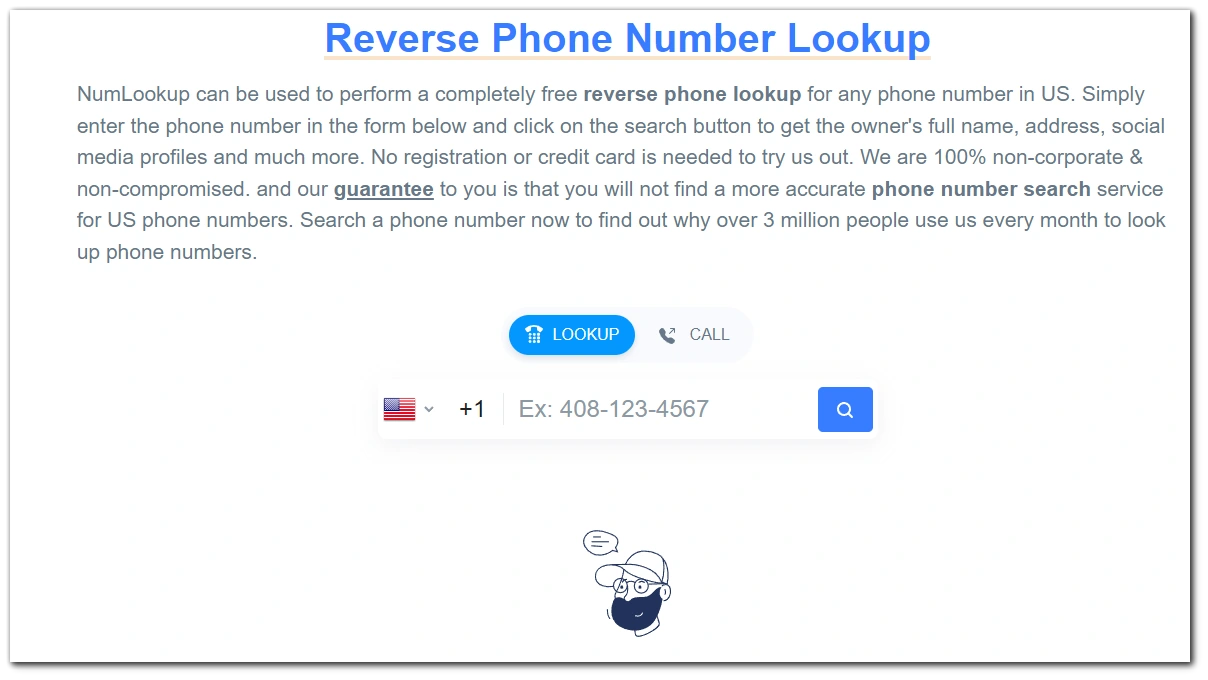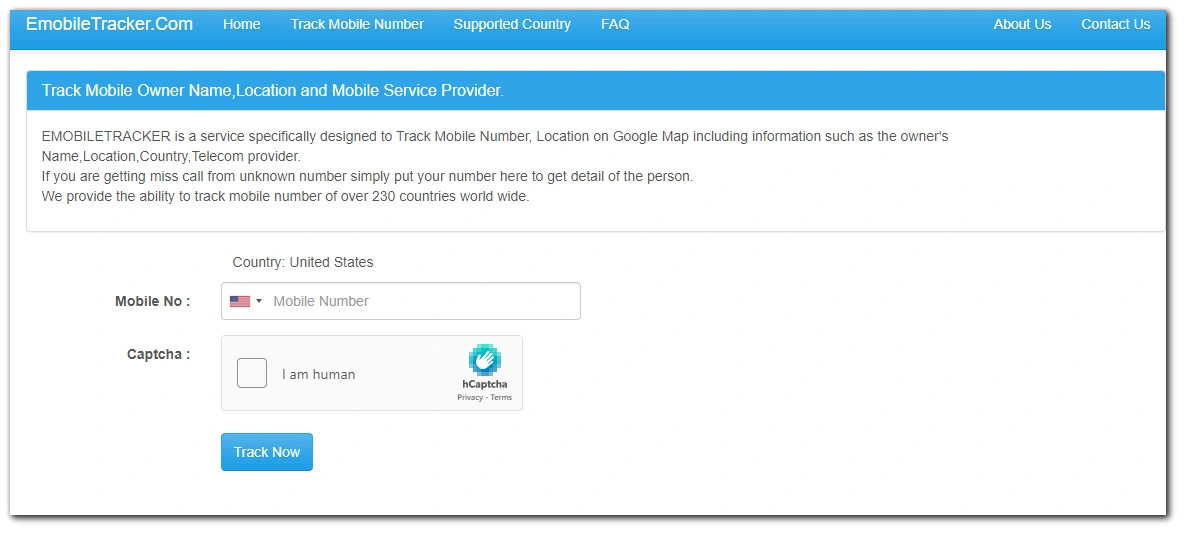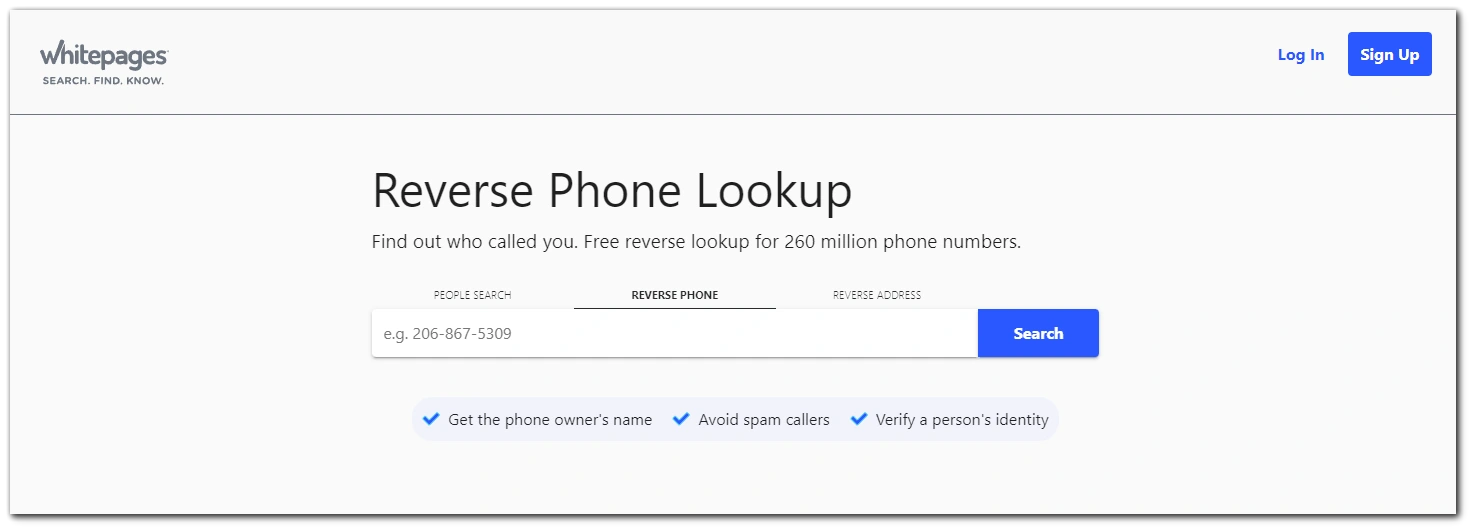I’ll be fair, I always feel stressed when I get a call from someone not from my contact list. But things go even worse if I miss the call. Suppose I miss the call and sit, wondering who was on the other end. Of course, I can call the number back and understand what’s going on. But that’s, well, something that makes me feel uncomfortable. Extremely uncomfortable, hah.
And the worst thing is when you call back and realize that it was some kind of “bad” call, like someone you don’t want to talk with. That may be prankers, scammers, or simply a person you don’t want to talk with.
Can you determine who called you? That depends. For some phone numbers, that’s just a matter of Google Search; for others, you’re unlikely to find the person behind the phone number even with thorough research.
Yet, more often than not, they yield disappointing results, resembling mirages that fade upon closer inspection.
One must approach these services with a healthy dose of skepticism, especially when faced with tantalizing promises behind paywalls. There exists a lucrative business model wherein curiosity is monetized. An initial search may hint at the availability of desired information only to reveal its absence post-payment. The truth? The vast databases these services boast of might still have glaring gaps.
While these platforms might occasionally offer a breadcrumb trail to follow, it’s prudent to exercise caution when they extend their hands, asking for money. Yes, they might have genuine leads from time to time. But the gamble? Is it worth the risk of paying for a potential void?
If you’re on the cusp of shelling out cash for a deep dive into such databases, step back and reflect. The free tidbits these services offer can indeed serve as springboards for your personal inquiries. However, when they beckon with more under a premium banner, it might be wise to keep your wallet closed.
Quick Guide: Search the number on Google; Use a reverse phone lookup service; Check on social media; Contact your mobile service provider.
Who is this number registered to?
Navigating the labyrinth of telephone numbers to identify an unknown caller is more of an art than a straightforward task. What do I mean? That’s not rocket science, of course, but a kind of task you need to be creative and quite persistent with. However, with the right tools and approaches, you have a chance to unveil who is behind a specific number. The first thing most guides will advise you – contact your provider. But that method is slow, first of all, and it doesn’t grant you with 100% percent chance to get an answer; the provider may simply don’t provide you with what you’re asking for.
So, contacting your provider is probably the worst thing you can do. Of course, you can try, but based on my experience, that’s unlikely to get you any fruits.
Same way, don’t expect to find all information about the phone number. That’s unlikely you will find the owner’s name or any other details anywhere except Google Search and social media. So I don’t recommend to pay to any third-party providers. You probably will pay for nothing, and you will find nothing.
Don’t expect miracles; you’re much more likely to end up with your searches with no result than verifying the phone number. Usually, the only thing you will find would be the phone number location, which may be enough to make some guess about who was behind the call but not enough to know exactly.
The initial step in this expedition is securing the phone number in question. For those with caller ID, the number usually flaunts itself on the screen. And usually, there would be not only the phone number displayed but also the location where to call was made from.
With the number at hand, you have several avenues to explore in order to decode its owner:
- Databases and Search Engines: A plethora of online databases store owner specifics tied to phone numbers. While this approach is straightforward, it’s not exhaustive. An auxiliary method is using search engines like Google. Occasionally, the number might be linked to a website or a social profile, shedding light on its owner. Or it may be shown somewhere on the Internet, and that would give you a way to understand who was calling you. But using search engines demands you to know how to use them correctly and find information. And searching for the phone number isn’t the same as searching, for example, for this article. You shouldn’t expect to see the phone number on the top-3 results of the Google Search list, so you may need to dive deeper into the search and spend some time checking different search results.
- Tapping into Local Intel: Sometimes, the old-school approach proves gold. Your acquaintances might recognize a frequent or nuisance number. This method might seem a tad traditional, but it could offer a fresh perspective. And that’s quite common when someone of your friend-of-friend is trying to reach you. So ask people you know; maybe they will recognize the phone number.
- Reverse Lookup Services: Essentially detective tools of the digital age, these services decode a phone number to reveal the name and address of the person or entity behind it. While efficient, they sometimes come with a price tag. So if finding the caller isn’t so important to you that you’re ready to pay, don’t use the one that wants you to pay. Try free services first.
- Engaging Directly with Companies: If you think that’s a particular company, you can approach them directly, and that can yield information. While they might not spill all the beans, they could provide a contact avenue or hint about the number’s purpose.
- Direct Outreach: Braving a direct call can sometimes cut through the chase. And that’s the fastest way, by the way. However, exercise caution and respect. For numbers that are unlisted, there’s often a good reason. If they don’t answer, respect their privacy.
While you might be curious, it’s essential to approach this task with sensitivity, ensuring that the line between legitimate inquiry and intrusion isn’t crossed.
How I usually deal with unknown numbers
To set the records straight, that’s only MY things I usually do. Just a personal experience and it may be irrelevant in your case. But here’s what I do in most cases when I see an unknown number that was calling me:
- I use Google Search
The best way is to use Google Search. If that’s a fraud number, it may be included in different databases in case that’s some kind of scam. Or you may find this phone number on social media if that’s a real person.
- Then I may use one of these databases
For the US and North America, the best ones (in my opinion) are Whitepages, WhoCallsMe, NumLookup, and EmobileTracker.
- I ask my friends
If databases are nothing to show or the info is not enough, I may ask my friends; maybe this number is on their contact list. Frankly, that’s quite common that the number I don’t recognize is the friend’s friend, so they can help me to understand who was calling me.
- If I think that the phone number is important, I may call back.
If I was expecting some important call or thought that it might be some kind of important one, I might just call back. If you’re waiting for an important call, that may be the best solution, especially if you can find the phone number online or in databases.
How to search for phone numbers in Google Search
Okay, you want to find a phone number in Google. Here’s how to start:
- Start with a phone number without a text
- Then add different social media names into your query, like [phone number] Facebook/LinkedIn/Blog/Website/Twitter.
- Then, try to add “company,” “owner,” “legit,” and “scam” to your search query behind the phone number.
- Travel across the links and don’t stop on the top 3-5 of the Google Search; sometimes, the phone number owner may be hidden even on the 2-3 page.
Does reverse lookup services worth it?
In my opinion, they are worth a try. But they don’t worth the money. A lot of them work the way that they will show you some basic information, like phone number and location, and then will ask you to pay or subscribe to see the full info. But usually, when you subscribe, you are likely to see no additional info. So don’t pay for this info, which will usually be a waste of your money.
How to find who was calling you with lookup services?
Before I write about them, I want you to understand one thing. Any service will provide you with 100% accurate information. I’ve written this a couple of times in my article, which may sound annoying, but you need to get it. When I see reviews of different lookup services, they usually have very low ratings on different review websites, like SiteJabber, and the reason is common: people expect that they will get accurate info, especially if they pay for the service. Of course, the services are guilty as well, as they usually don’t provide the proper disclaimer that the information may be inaccurate.
Here are 4 lookup services I recommend:
Absolutely free service, but it will give you only some general info. It’s community-supplied, and anyone can leave there a review on a phone number. They have around 0.5M visitors per month, according to SimilarWeb.

As MUO writes, they work on direct partnerships with Telecom companies and make an API request to get the owner’s name. I don’t know whether that’s true, but they work well. I used different phone numbers to test; well-established phone numbers, like businesses or public institutions, work extremely well and provide much information (including the name) for free.
According to SimilarWeb, they have around 1.5M visitors.

The service works, and it’s free, but it provides not a lot of information. For my phone numbers, it found only the location and the country (thanks, hah), and I haven’t found the name. NumLookup found the name, so taking into account both of them are free, NumLookup seems to be a better idea to use.
The service has 0.5M visitors, according to SimilarWeb.

WhitePages is one of the most well-known services in the US and North America. According to SimilarWeb, they have around 20M visitors monthly.

It works both with cell and landline phone numbers, but almost all features are for premium users only. For free, they will provide information only about the spam risk. For me, it’s useful if you want to check whether you got a call not from the spammers.
The reviews over the web are extremely low, like 1.23 on SiteJabber and 2.5 on TrustPilot. Most users complain that they’ve paid and got no information or information that was outdated. But that’s the common thing for such lookup services at all.
And that doesn’t mean you will always pay for nothing. There’s a chance you will pay and get actual and useful info. The only problem is that it’s always a lottery.
Call the number back
Maybe not the best, but the easiest option. Just call them back and ask who are. Just keep up with these rules:
- Always double-question everything they say to you. If that’s scammers, they usually play a game that doesn’t let you enough time to think everything twice. Don’t play their rules, and keep your mind and reasoning cold.
- If that’s a caller you don’t want to talk with, you can always say: “Sorry, I don’t have time, bye.” And end the call.
- If that’s some kind of important call and you’re not ready to speak now, you can always tell them you will call back later (when you’re ready).





